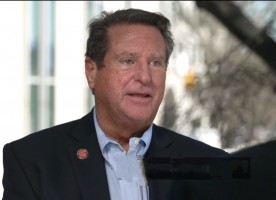Education is one of the critical pillars of the American dream, providing hope and opportunity. Our organization has worked hard to shape education policy because it invites innovation and encourages big-picture thinkers to overcome the impossible. We believe in Tennessee students and those who work to educate them.
To achieve this, we prioritize evidence-based approaches in educational policies. By doing so, we create a brighter future for all students and ensure they receive the support they need to thrive. There will never be a one-size-fits-all model for public education, and no single academic model can work for a diversified population in a state or nation.
Critics of public education often focus on the wrong things, using faulty information, and need to utilize more complete information. The current Lee administration has found it easy to blame teachers, principals, the school system, or society.
Universal vouchers are not a cure-all and cannot solve the problem of poverty and the social ills that come with it. If the discussion revolves more around promoting competition and less about innovation in schools, the debate will continue indefinitely. You may change the zip code where a child attends a school, but you will not change the home address. You will only address fundamental issues like student achievement once you first address the impact of factors outside the classroom.
There is a false narrative that public education is failing. Public education isn't “broken.” Public education policy is “broken,” and neighborhood public schools suffer the consequences. Many times, decades of societal issues are not addressed. These cultural issues get laid at the feet of public schools.
Pointing fingers does not provide a solution for students and parents; we should not look for a magic solution. If we want exceptional results for our kids, we must have tough conversations, roll our sleeves up, and put in the work. Cut and run is not an option.
People ask how we dropped from 80% and 90% proficiency rates to 30% to 40% state-wide. Here is the answer. In 2010, Tennessee received $501 million in Race to the Top Funds from the Obama administration. These funds led Tennessee to implement a new evaluation system, more testing, and adopting Common Core standards. The result was a significant drop in Tennessee's proficiency scores by almost 50% in just one year. The cause was the new system rather than a sudden decline in student performance or teacher capability.
In the past ten years, the Tennessee State Standards have become more challenging, requiring students to know more than they did before. However, our students are mainly performing as well as they did in previous decades. Urban school districts have been in crisis for years, struggling to provide high-quality education for all students. We must be innovative in an ever-changing world.
Since the 1970s, the National Assessment of Educational Progress (NAEP) has monitored the academic performance of 9-, 13-, and 17-year-old students. The scores have remained relatively consistent in reading and mathematics but rise and fall as standards and curriculum change.
We introduced a new report card system that grades schools and accountability components. Schools are now being held accountable for a system and components they were unaware of, such as the new focus on the bottom 25% of students. To our knowledge, the 2022-23 report card and the Annual Report by the Commissioner, as required by Tennessee Code Annotated 49-1-211, have yet to be made available to the public.
Since August, school districts and leaders across the state have expressed concerns about the lack of communication and frequent rule changes within the Tennessee Department of Education, which could negatively impact public schools. If we believe Tennessee's accountability system is vital for accurate and valuable data on public school students. In that case, we should collect the same information for students who receive universal vouchers.
An engaging and challenging education is the proven path to prosperity and a life-long love of learning. It has long been acknowledged that a solid educational system is essential not only to the successful functioning of a democracy but also to its future. Collaboration is vital, and we must all work together for public education to improve and deliver on its promise of a better future for all.
##
JC Bowman is the executive director of Professional Educators of Tennessee











